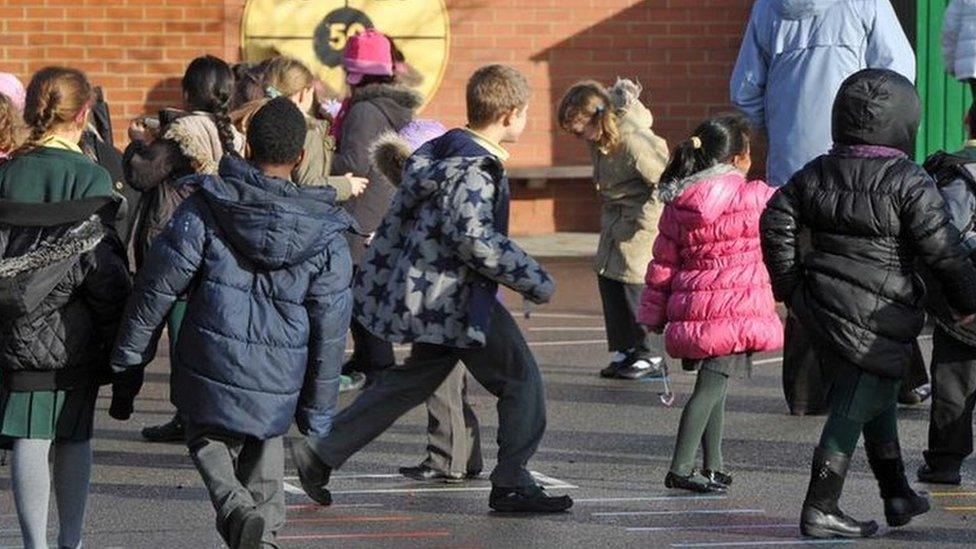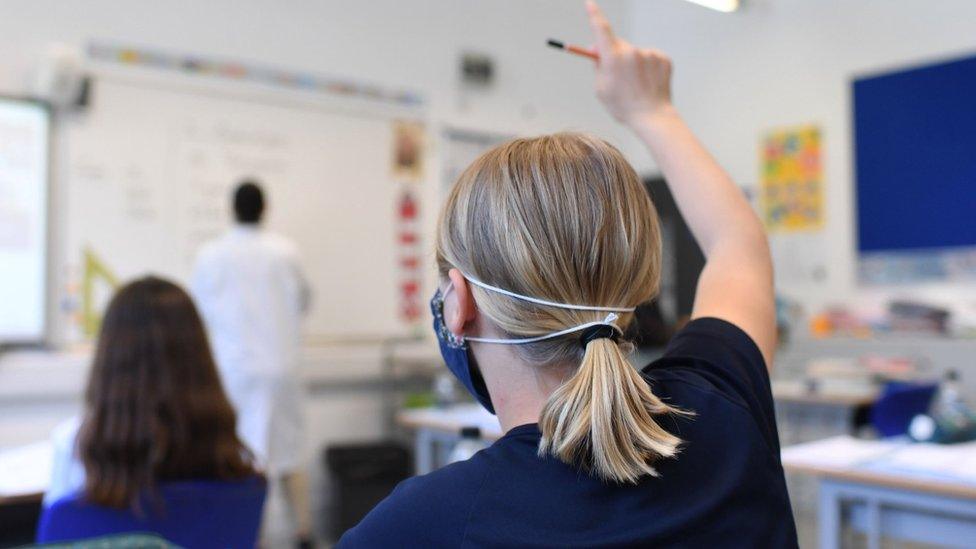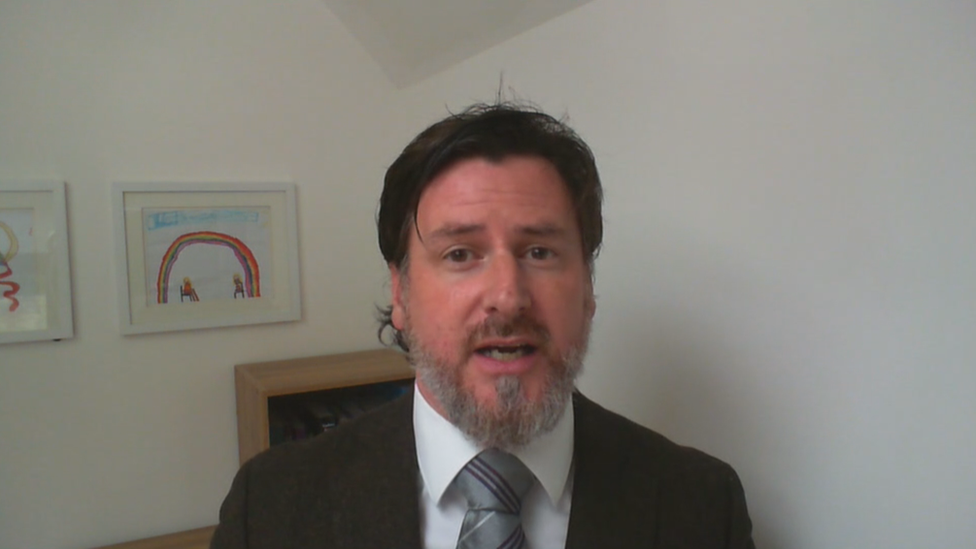Coronavirus: Scotland facing 'children's rights emergency'
- Published
- comments

There have been concerns about young people being cut off from their friends during lockdown
Scotland is facing a "children's rights emergency" in the wake of the coronavirus pandemic, the country's children's commissioner has warned.
Bruce Adamson said he had "grave concerns" about the long-term impact of the virus lockdown on young people.
He said "every child" will need extra support with their mental wellbeing, calling for extra investment in staff.
The Scottish government said a children's rights approach was central to its Covid-19 response.
Ministers are planning for the reopening of Scotland's schools in full from 11 August, without any physical distancing restrictions in place.
The Scottish government has recently targeted the easing of some lockdown measures at young people, allowing them to see more of their friends and return to team sports.
'Changed world'
Mr Adamson said that lockdown has had a "disproportionate impact" on children, particularly those "who were already at risk".
He told BBC Scotland: "Those quarter of children in Scotland who were already experiencing poverty, those already with additional mental health support needs, and disabled children - the children we were already most concerned about are the ones I am really, really worried about.
"We changed all of their worlds really quickly, and supports like education and community-based support disappeared very quickly, and that really exacerbated the challenges a lot of children were facing.
"Children's voices were really lost in our decision making about how to deal with the pandemic."

Mr Adamson said children should have been more involved in decisions about schools and exams
Mr Adamson said Scotland had a "reasonably good" record of involving children in decisions about their future, but said this was "almost seen as an additional afterthought" when the pandemic began.
He said: "For older children the changes to the SQA system and exams was particularly stressful, but also the discussions around virtual learning and how to reopen schools. Children should have had a seat at that table and been involved in decision making."
The children's commissioner said the emergency legislation passed at Holyrood and Westminster had "impacted significantly on a wide range of children's human rights", and that not enough had been done to assess its impact.
He said not enough data was being collected about how many children were living in poverty, were suffering food insecurity or digital exclusion, or were in need of mental health or additional learning support.
He said that "without this data it is hard to see how children's needs are being met, no matter how well-intentioned the [coronavirus] legislation is".

Mr Adamson said he was "really worried" about children who were already at risk before the pandemic
Mr Adamson said Scotland was facing a "children's rights emergency" as well as a public health one, saying there was going to be a "major impact" on education and mental health.
"Now is the time to make sure we're putting support in place. Every child is going to need additional support with their own mental wellbeing - every child is going to need additional support with their education in the broadest sense," he said.
"We're going to have to invest really heavily in supporting youth workers, early years workers and others who know how to work with children and help them develop.
"We need urgent measures to address poverty, digital and social exclusion and to support the mental health of young people. If we don't act really urgently here I have really grave concerns about the long term impact for children across Scotland."
Children's rights
The Scottish government said children's rights and wellbeing mattered now more than ever, and pointed out that a bill to incorporate the UN Convention on the Rights of the Child into Scots law would be delivered within this parliamentary session.
A spokesperson said: "A children's rights approach is being embedded into our response to Covid-19 and our approach to recovery and renewal, with Child Rights and Wellbeing Impact Assessments published for the Coronavirus (Scotland) Act and the Coronavirus (Scotland) (No.2) Act."
In June, the education secretary announced £100m of new funding over the next two years "to support the return to school and help children recover any lost ground", saying cash would be invested in "ensuring that children get the support they need".
He also said extra support would be given to youth worker teams and "those families and communities who need it most", in light of the fact that "lockdown has been particularly difficult for pupils from disadvantaged backgrounds".

THE R NUMBER: What it means and why it matters
LOOK-UP TOOL: How many cases in your area?
